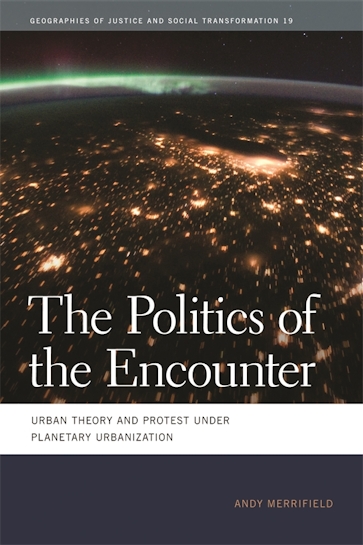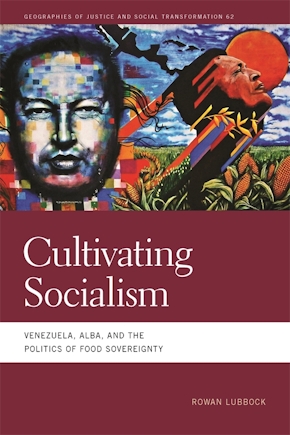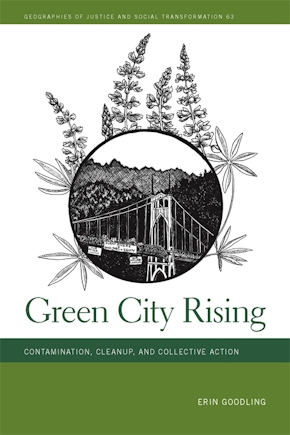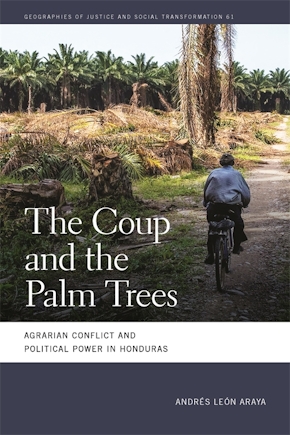The Politics of the Encounter
Urban Theory and Protest under Planetary Urbanization
Title Details
Pages: 184
Trim size: 6.000in x 9.000in
Formats
Paperback
Pub Date: 04/15/2013
ISBN: 9-780-8203-4530-7
List Price: $24.95
Hardcover
Pub Date: 04/15/2013
ISBN: 9-780-8203-4529-1
List Price: $120.95
eBook
Pub Date: 04/15/2013
ISBN: 9-780-8203-4581-9
List Price: $24.95
Subsidies and Partnerships
Published with the generous support of Friends Fund
The Politics of the Encounter
Urban Theory and Protest under Planetary Urbanization
Skip to
- Description
- Reviews
The Politics of the Encounter is a spirited interrogation of the city as a site of both theoretical inquiry and global social struggle. The city, writes Andy Merrifield, remains "important, virtually and materially, for progressive politics." And yet, he notes, more than forty years have passed since Henri Lefebvre advanced the powerful ideas that still undergird much of our thinking about urbanization and urban society. Merrifield rethinks the city in light of the vast changes to our planet since 1970, when Lefebvre's seminal Urban Revolution was first published. At the same time, he expands on Lefebvre's notion of "the right to the city," which was first conceived in the wake of the 1968 student uprising in Paris.
We need to think less of cities as "entities with borders and clear demarcations between what's inside and what's outside" and emphasize instead the effects of "planetary urbanization," a concept of Lefebvre's that Merrifield makes relevant for the ways we now experience the urban. The city—from Tahrir Square to Occupy Wall Street—seems to be the critical zone in which a new social protest is unfolding, yet dissenters' aspirations are transcending the scale of the city physically and philosophically. Consequently, we must shift our perspective from "the right to the city" to "the politics of the encounter," says Merrifield. We must ask how revolutionary crowds form, where they draw their energies from, what kind of spaces they occur in—and what kind of new spaces they produce.
What happens when you scale up the familiar to the planetary level? Unexpected alignments and shocking truths come into focus. The spaces for citizenship and the spaces for poverty take on shape, as do the spaces of power and indifference. This is a great little book.
—Saskia Sassen, Cities in a World Economy
Dip into any page of Merrifield's idiosyncratic and learned commentary on urbanity and politics and you'll take away memorable insights. Henri Lefebvre would surely have approved of this fulsome effort to extend and recalibrate his thoughts.
—Andrew Ross, author of Bird on Fire: Lessons from the World's Least Sustainable City



